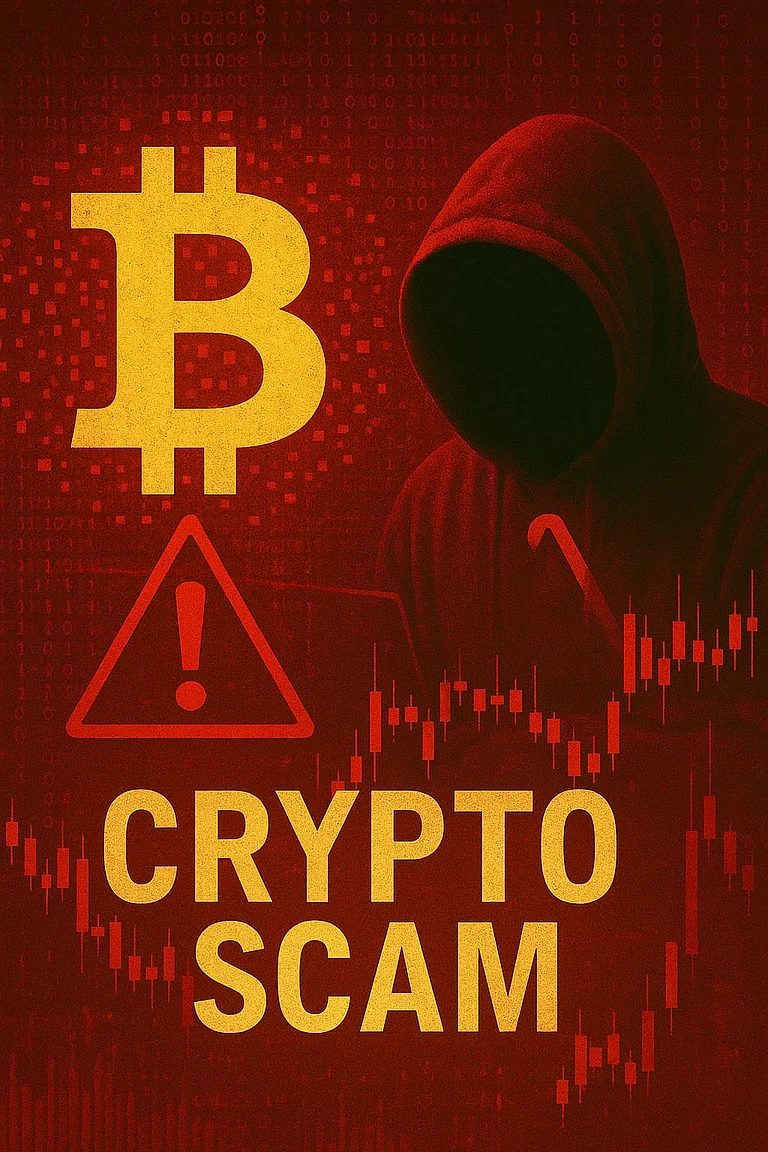
Summary of this article
Phishing scams trick users into revealing crypto wallet keys.
Always verify URLs, avoid suspicious links, never share private keys.
Enable two-factor authentication and use only official apps/websites.
Cryptocurrency adoption is increasing day by day, connecting more users into the digital asset space. While this rise has attracted fraudsters who use phishing attacks to target cryptocurrency wallets. Understanding how these attacks operate and how to stay safe is important for being secure in the ever changing crypto ecosystem.
How Phishing Scams Threaten Your Crypto Wallet
Phishing attacks aimed at cryptocurrency wallets include cybercriminals posing as legitimate websites, emails, or texts. Their goal is to deceive users into disclosing their private keys, passwords, or recovery phrases. Hackers can use this information to access the victim's cryptocurrency wallet and steal money from it.
According to Chainalysis, personal wallet hacks now make up over 23 per cent of all stolen cryptocurrency funds in 2025. Interestingly, much of the stolen crypto isn't moved right away. About $8.5 billion worth of assets stolen from personal wallets this year are still sitting idle on the blockchain, along with $1.28 billion from exchange hacks that haven't been laundered yet. This shows how concerning phishing attacks on individual users can be in the crypto space.
How to Avoid Phishing Scams
1. Always Verify URLs and Email Senders
Scammers often do fake messages or use phony websites that looks genuine ones. Always double-check the website URL for slight misspellings or extra characters. Similarly, scrutinise the sender's email address carefully. If anything looks suspicious or unfamiliar, do not click any links or provide information.
2. Never Share Your Private Keys or Seed Phrases
Your private keys and seed phrases are the most important security elements for your crypto wallet. Legitimate service will ever ask you for these details. If you share them even once, it can give scammers full access to your assets. Always keep this information private and store it securely offline.
3. Enable Two-Factor Authentication (2FA)
Your accounts will be more secure with two-factor authentication which helps prevent unwanted access in the event that your password is stolen. Hackers can access and take money from the victim's bitcoin wallet using this information.
4. Avoid Clicking on Suspicious Links or Attachments
These emails and texts usually contain attachments with links that direct users to fake websites or download malware. If you want to be safe, avoid clicking on links in unexpected communications especially if they want your personal information. Instead of this, go directly to the official website by typing the URL manually.
5. Use Official Apps and Websites Only
Make sure you only download programs and access platforms via official means such as the official website, Google Play or the App Store. You should stay away from third-party apps and links because it can be fraudulent and steal your personal information. You can verify the legitimacy of a program by checking developer credentials and user reviews.















